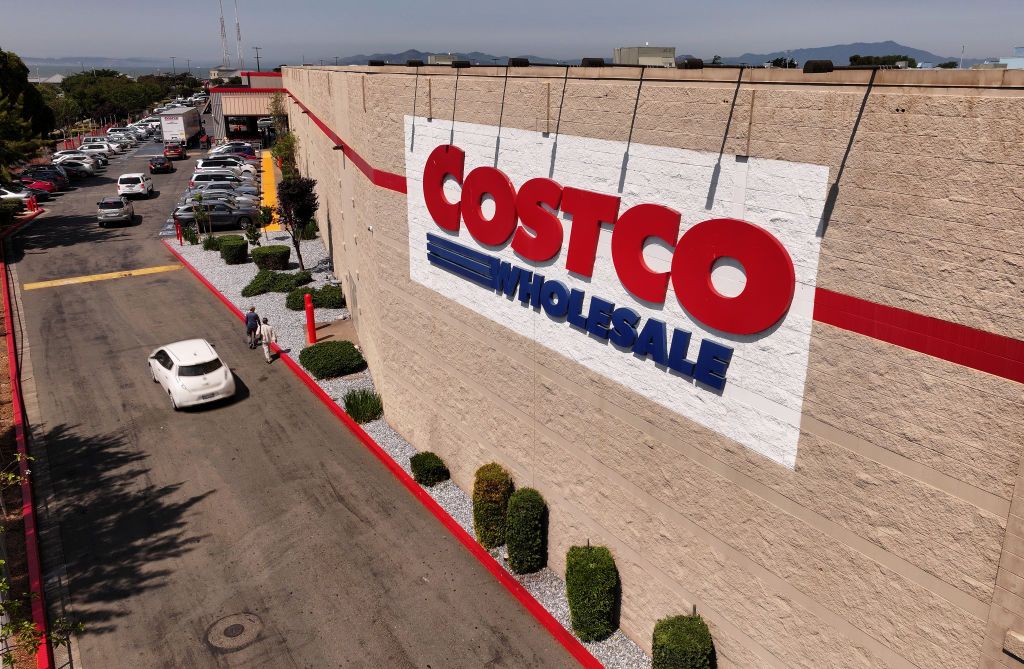Bussiness
How tariffs could hurt small businesses in New England – The Boston Globe

“A Walmart or an Amazon, which has connections around the world, is large, has a lot of resources, or has comparatively more resources, to spend on logistics and related services when it comes to finding new suppliers,” Nina Eichacker, an associate professor of economics at the University of Rhode Island, told the Globe. “Whereas a small business that is not as globally interconnected, that operates with smaller margins, is going to be much more vulnerable to the consequences of these rising costs.
“So if your company uses wheat harvested in Canada, if your restaurant uses produce that was grown in Mexico, if your factory relies on batteries that were produced in China, the cost of production is going to rise and you are going to be strongly motivated to raise prices to consumers,” she added.
Some of the aluminum for the cans that Pivotal Brewing uses comes from abroad. Canada is also a crucial source of barley malt, a key ingredient in beer, and is the third largest exporter of the product in the world. Costs for these products could rise with the potential introduction of tariffs.
“We’re preparing for this. We believe that there’s probably a pretty good chance that there will be some cost increases in our business, and we’re going to have to be prepared to react to them,” Nicholson told the Globe. Increasing prices or pivoting toward selling more expensive offerings could be possible, he said.
Trump has floated the idea of increasing tariffs for other countries as well. In November he warned Brazil, Russia, India, China, and South Africa — the group of countries that make up the BRICS bloc — that they could be hit with a 100 percent tariff on their goods sold in the US if they move away from using the US dollar in global trade. And during the presidential campaign, he suggested across-the-board tariffs of up to 20 percent on Chinese goods.
Some business owners said that if tariffs do come into effect, their customers will essentially pay for the rise in costs.
Ivan Sanchez owns Casa Mexico, a grocery store in Providence, and also runs Sanchez Mexican Food Distributor, which supplies restaurants in New England with wholesale food products. He does not import products he sells himself, but works with another company that sources the goods directly from Mexico. Sanchez said in an interview he supported Trump because of his background as a businessman, but said if the incoming administration follows through on proposed tariffs and the cost of things like avocados or jalapeños from Mexico go up, he’ll be forced to pass those increased costs along to customers.
“I’ve got to mark up my product to compensate for the tariff, but who’s going to get hurt, whose pockets is going to get hurt at the end of the day? The final consumer,” he said.
Edinaldo Tebaldi, a professor of economics at Bryant University, said he’s skeptical that the proposed tariffs will spark a new wave of local production and quickly reduce the dependence on foreign imports for companies in the US, including in New England.
“We can’t produce everything here. We operate in a global economy, globally integrated economy,” he said. “We rely … on imports of inputs to produce new products in the region. That will not change and it’s just wishful thinking.”
When Trump instituted billions of dollars worth of tariffs on Chinese goods in 2018, some manufacturers found trade partners in other Asian countries or identified new collaborators in Mexico to source their goods. But the suggestion that Mexico is now in Trump’s crosshairs has injected deep uncertainty for businesses in New England, said Paula Connelly, president of The Coalition of New England Companies for Trade.
“The smaller companies that have decided to invest in production in Mexico now are facing the potential that they could end up being hit with 25 percent tariffs again,” Connelly, who is also an international trade lawyer, said. “The biggest concern, because we don’t know whether or not that this may potentially just be some posturing or bargaining chip, or is this something that starting on Jan. 20, companies have to worry about.”
And there’s another side to the issue of tariffs: If affected countries retaliate, small businesses that export goods to Canada or Mexico could be hurt as well, said Peter Simon, a professor of economics at Northeastern University.
Simon noted that the impact of tariffs on goods from Mexico could affect New England businesses that consumers don’t typically think of as relying on foreign goods, such as car dealerships.
“Most of the cars that we get from Mexico are produced by American firms down there,” he said.
Businesses also worry that the higher prices needed to cover the tariffs may lead consumers to pull back on purchases.
Tony Salehi, a marketing manager at RT28 Motors, a small car dealership in North Reading, Mass., said that the interior upholstery and other parts for cars many dealers sell come from Mexico. If the tariffs are imposed, they will be forced to pass that extra cost to consumers.
“It’s going to take a toll on them. Therefore, they are going to be reluctant to spend like before because now they have to pay up more for other things,” he said. “That will affect us.”
Omar Mohammed can be reached at omar.mohammed@globe.com. Follow him on Twitter (X) @shurufu.


/cdn.vox-cdn.com/uploads/chorus_asset/file/25817495/ryzen99950x3d.jpg)






